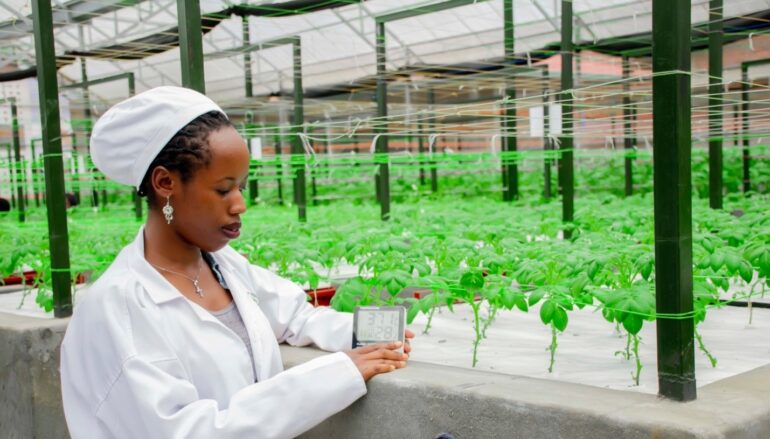TL;DR:
- Theofrida Muginga from the University of Rwanda is creating ‘Mkulima GPT,’ an AI-powered Swahili chatbot aimed at helping smallholder farmers.
- ‘Mkulima GPT’ uses AI and IoT to detect crop diseases and provide tailored agricultural advice.
- The project emphasizes the inclusion of local languages and plans to expand its services to more African languages.
- Farmers can access the system through a dedicated website and a WhatsApp helpline for a wide range of farming-related queries.
- The application focuses on promoting best practices to combat crop diseases.
- ‘Mkulima GPT’ is in testing and welcomes user feedback, with plans for a December launch.
Main AI News:
In the realm of agribusiness innovation, a young visionary emerges from the University of Rwanda, Theofrida Muginga, with a groundbreaking initiative known as ‘Mkulima GPT.’ This project, adorned with the promise of revolution, harnesses the power of ChatGPT infused with Swahili fluency. Its noble mission? To embolden smallholder farmers on their agricultural journey by combatting crop diseases and dispensing culturally-sensitive farming counsel.
Named ‘Mkulima GPT,’ this extraordinary venture seamlessly marries the realms of artificial intelligence (AI) and the Internet of Things (IoT) to serve the needs of small-scale farmers, particularly those operating with limited resources. Theofrida Muginga, the founder of ‘Mkulima GPT,’ reflects on her roots in agriculture, stating, “I come from a background where we depend on the cultivation of Agriculture.” She goes on to highlight the digital divide among farmers, underscoring the underutilized potential of AI technologies like CHATGPT in the agricultural sphere.
What distinguishes ‘Mkulima GPT’ is its unwavering commitment to local languages and its ambitious vision to extend its services to encompass a plethora of African languages. In a bid to ensure inclusivity and accessibility, ‘Mkulima GPT’ has already established its online presence through a dedicated website and a WhatsApp helpline. Here, farmers can pose inquiries spanning a gamut of topics, from farm preparation to the management of maize diseases and even post-harvest procedures.
Theofrida Muginga elucidates the project’s aspirations, saying, “We are expecting to have multiple numbers of farmers to use this technology, and we are looking at the possibility of including Kinyarwanda into CHATGPT as well.” She underscores the importance of promoting best practices, as the insidious crop disease known as ‘[head] smut’ continues to plague farms due to suboptimal agricultural methods. The ‘Mkulima GPT’ application tirelessly champions prudent agricultural practices, steering farmers away from practices that perpetuate the disease.
Currently undergoing rigorous testing, this pioneering project eagerly awaits user feedback and is slated for a December launch. Agriculture and AI experts are collaborating closely to bolster its capabilities, ensuring that it reaches smallholder farmers equipped with the utmost precision and effectiveness. ‘Mkulima GPT’ is poised to revolutionize the agricultural landscape, bridging the technological gap and ushering smallholder farmers into a brighter, more prosperous future.
Conclusion:
The emergence of ‘Mkulima GPT’ signifies a promising development in the agricultural technology market. This innovative project not only addresses the immediate needs of smallholder farmers but also places a strong emphasis on linguistic inclusivity. As it moves towards a December launch, it has the potential to bridge the technological gap in the agriculture sector and pave the way for further AI-driven solutions tailored to local contexts, opening up new opportunities in the market.

